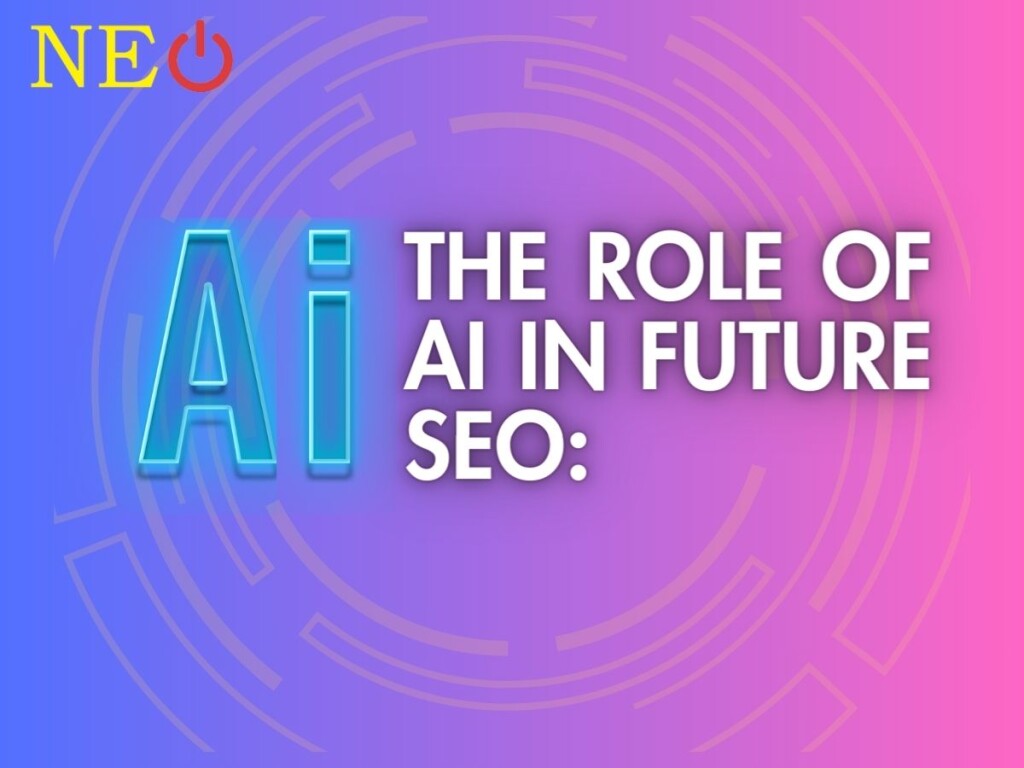Being ahead of the curve is not only advantageous but also essential in the ever changing field of digital marketing. The influence that artificial intelligence (AI) will have on Search Engine Optimization (SEO) tactics is growing as we move forward. In this article, we'll examine how AI is revolutionizing SEO and the adjustments that companies will need to make in order to succeed online in the years to come.
The Rise of AI in SEO
Artificial Intelligence is transforming the way search engines index and rank content because of its capacity to scan large datasets and extract insightful information. Google's algorithms are getting better at interpreting user intent, context, and content relevance thanks to machine learning and artificial intelligence. This change is affecting SEO tactics and making it necessary for companies to take proactive measures in order to continue appearing in search results.
Understanding AI-Powered Search Algorithms
Backlinks, content quality, and keyword optimization have been the mainstays of traditional SEO tactics. These elements are still very important, but AI is adding another level of complexity to search algorithms. For example, search engines can now comprehend the context of individual words in a sentence thanks to Google's BERT (Bidirectional Encoder Representations from Transformers) technology, which makes search queries more conversational and context-aware.
Target Keywords: Evolving from Strings to Contextual Intent
The focus on target keywords in SEO will change in the future from being simple word strings to comprehending the context of user inquiries. Companies should concentrate on producing content that fulfills user wants and is in line with user intent by offering insightful information. In order to satisfy AI-driven algorithms, long-tail keywords and natural language optimization will become more and more crucial.
Advice: To find long-tail keywords that are pertinent to your business, do extensive keyword research. Make content that answers your audience's fundamental concerns and goals in addition to include these keywords.
Content Quality: Contextual Relevance and User Engagement
Content with relevant keywords, together with user involvement and contextual relevance, is given priority by AI algorithms. Excellent, educational, and captivating content will be essential to SEO success. Companies should make an effort to deliver material that offers a seamless user experience and fully addresses consumer inquiries.
Advice: Make an investment in producing comprehensive, reputable literature that responds to frequently asked queries in your sector. Use multimedia components to increase user engagement, such as infographics and films.
User Experience (UX): Speed, Mobile Optimization, and Accessibility
Website ranking algorithms powered by AI give significant weight to the user experience. The key factors in guaranteeing a satisfying user experience will be accessibility, mobile optimization, and page loading speed. To meet the changing expectations of users and search engines, businesses need to give priority to these factors.
Advice: Make sure accessibility features are included, regularly check the speed of your website, and optimize it for mobile devices. Success with SEO is greatly influenced by a satisfying user experience.
Personalization: Tailoring Content for Individual Users
Search engines can now offer individualized search results depending on user behavior, tastes, and location thanks to artificial intelligence. Companies should modify their SEO plans to incorporate local optimization, tailored content suggestions, and a better comprehension of their target market.
Advice: Make use of data analytics technologies to comprehend user preferences and behavior. Make sure your marketing tactics and content are customized to give your audience a unique experience.
Voice Search Optimization: Conversational and Natural Language
Voice search is becoming more and more common as voice-activated gadgets proliferate. The subtleties of voice queries, which have a tendency to be more conversational and natural in language, require that SEO techniques change.
Tip: Use conversational keywords and popular voiced questions to make your content more voice search friendly. Think about drafting voice search-friendly FAQ sections.
Technical SEO: Structured Data Markup and Schema.org
In the AI-driven world, technical SEO components like Schema.org implementation and structured data markup will become even more important. These components increase the likelihood of rich results and featured snippets by assisting search engines in understanding the context of the material.
Use structured data markup for important pages on your website. This contains company details, product details, and any other pertinent information that improves the reader's comprehension of your article.
Embracing Change: The Future of SEO
It is evident as we traverse the future of SEO that companies looking to preserve and enhance their online presence must embrace the changes brought about by AI. The future is in emphasizing user experience, producing content that is in line with user purpose, and remaining flexible in the face of changing algorithms. The secret to success in the digital sphere will be to adjust to the changing landscape of AI-driven search engines, even though classic SEO features are still important. In order to keep your company at the top of search engine results in the years to come, stay informed, be flexible, and ride the wave of AI change.









